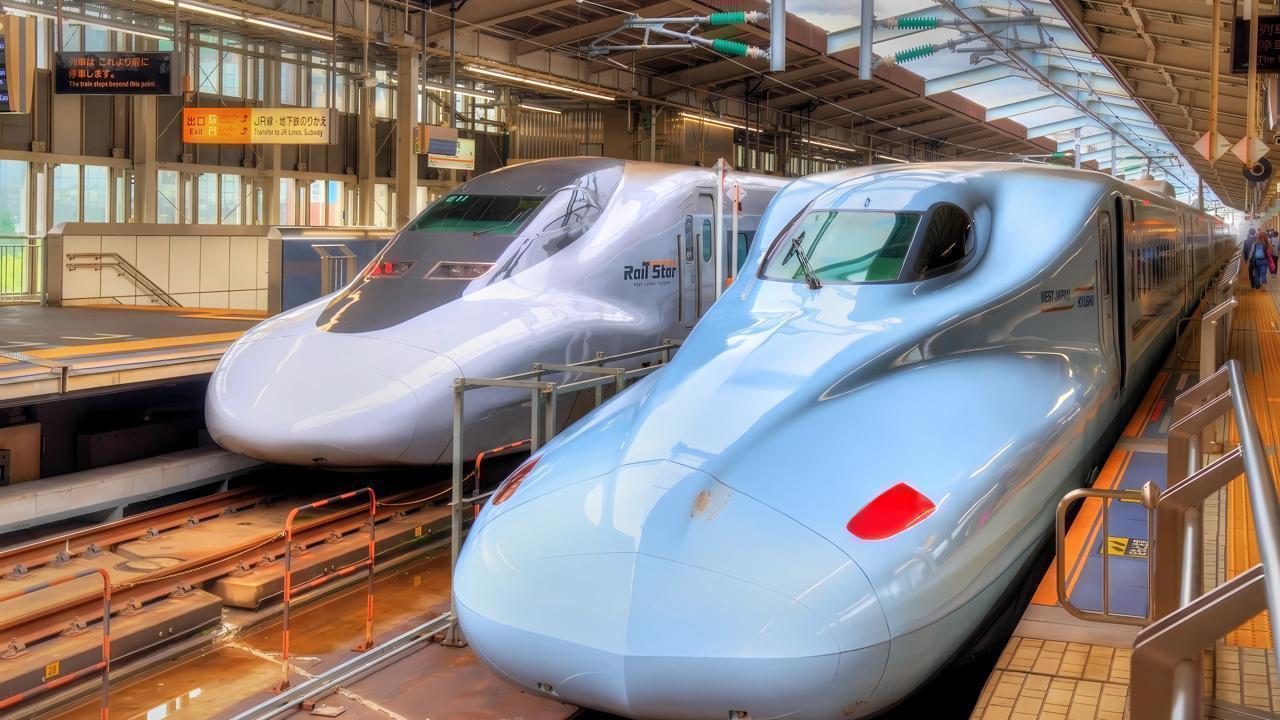
Post by : Amit
Japan’s iconic high-speed rail network has taken a futuristic leap in passenger comfort and hygiene. Japan Railways (JR) has officially introduced fully autonomous, AI-powered self-cleaning toilet systems on its next-generation Shinkansen trains, blending innovation, cleanliness, and accessibility into one high-tech solution.
Engineered with the precision and foresight Japan is known for, these new toilet units incorporate advanced ultraviolet (UV) sterilization, real-time hygiene monitoring, and voice-controlled accessibility features — making them some of the most sophisticated onboard sanitation systems in the world.
The toilets are designed to sterilize themselves after every use. Once a passenger exits, a smart occupancy sensor activates the cleaning cycle. Using UV-C light, robotic arms sanitize all surfaces — including the seat, floor, and flush controls — ensuring a germ-free experience for the next user.
The system also includes AI-driven hygiene monitoring, which constantly evaluates usage patterns and cleanliness levels. If manual intervention is needed, onboard staff receive instant alerts via a connected dashboard, enabling prompt response even between stops.
“This isn’t just a toilet — it’s a self-maintaining, intelligent hygiene station,” said a JR Central spokesperson. “In a post-pandemic travel world, safety and cleanliness are not luxuries, but expectations. We’re proud to meet them with Japanese innovation.”
The new units are also barrier-free and voice-responsive, catering to passengers with mobility impairments, the elderly, and non-Japanese speakers. Users can issue commands to open or close doors, initiate cleaning, or adjust settings through a multilingual voice interface.
Ergonomic design ensures ease of entry for wheelchair users, while tactile sensors and visual cues support visually impaired passengers. The system’s inclusive features are expected to set a new global benchmark for accessible travel.
Beyond hygiene and accessibility, the smart toilets are designed with sustainability in mind. Water usage is optimized with pressure-controlled flush systems, and biodegradable sanitizing agents are used during the cleaning cycle. The system is integrated with the train’s onboard energy network to ensure efficient power consumption, especially during high-speed transit.
The rollout is part of JR’s broader effort to modernize the passenger experience across its Shinkansen fleet. The AI toilets have initially been introduced on the N700S series trains, which operate on the busy Tokyo–Osaka route. If successful, JR plans to expand the technology across its entire network by 2027.
Train technology experts believe this move may inspire other global rail operators to adopt similar high-tech sanitation models — especially in light of heightened post-COVID cleanliness expectations.
Japan has long been at the forefront of toilet innovation, with smart features already common in homes, airports, and public facilities. Now, that reputation is extending to the railways — in typical Shinkansen style: quiet, fast, efficient, and ahead of its time.
As high-speed travel continues to evolve, Japan’s self-cleaning, AI-driven toilets are not just a novelty — they’re a glimpse into the future of hygienic, inclusive, and intelligent mobility.
Japan










Advances in Aerospace Technology and Commercial Aviation Recovery
Insights into breakthrough aerospace technologies and commercial aviation’s recovery amid 2025 chall

Defense Modernization and Strategic Spending Trends
Explore key trends in global defense modernization and strategic military spending shaping 2025 secu

Tens of Thousands Protest in Serbia on Anniversary of Deadly Roof Collapse
Tens of thousands in Novi Sad mark a year since a deadly station roof collapse that killed 16, prote

Canada PM Carney Apologizes to Trump Over Controversial Reagan Anti-Tariff Ad
Canadian PM Mark Carney apologized to President Trump over an Ontario anti-tariff ad quoting Reagan,

The ad that stirred a hornets nest, and made Canadian PM Carney say sorry to Trump
Canadian PM Mark Carney apologizes to US President Trump after a tariff-related ad causes diplomatic

Bengaluru-Mumbai Superfast Train Approved After 30-Year Wait
Railways approves new superfast train connecting Bengaluru and Mumbai, ending a 30-year demand, easi